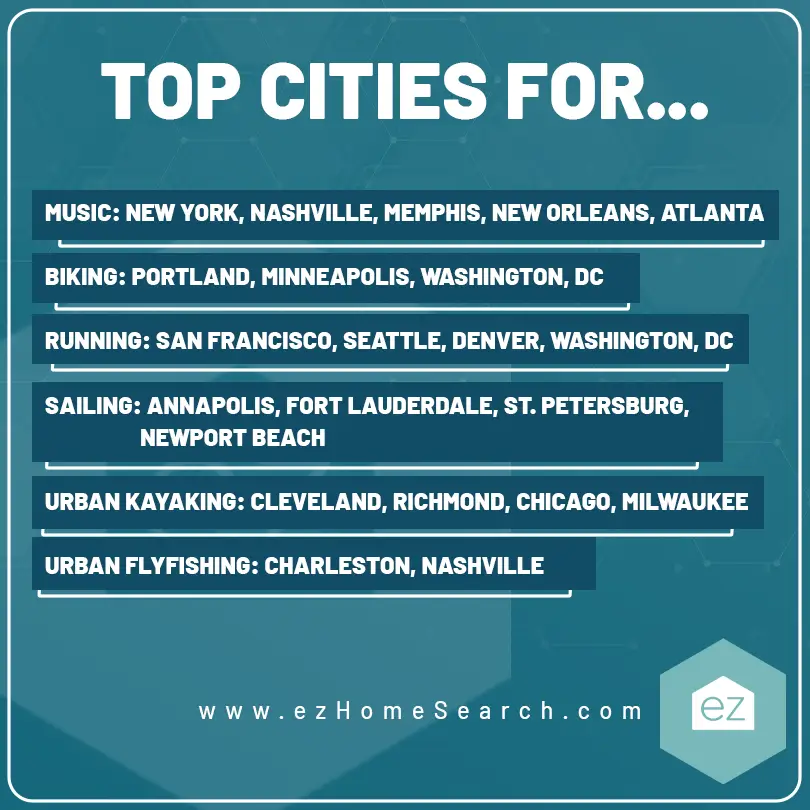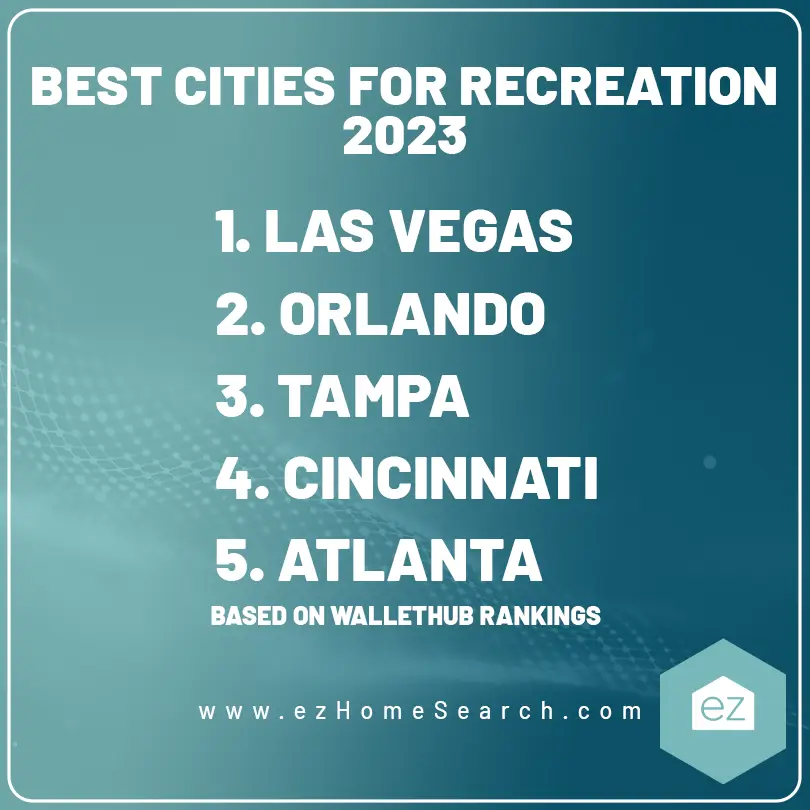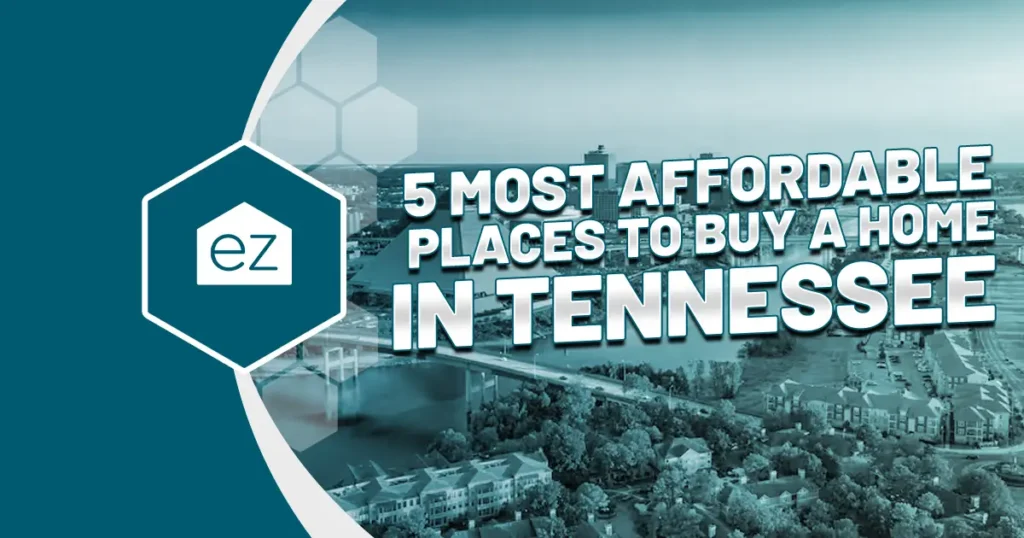Choosing Your Home When You Love Both the City and the Outdoors
Ah, the eternal conundrum for the metropolitan mountaineer, the city slicker who craves fresh country air: where on this green earth should you set up your home? The thrum of the city’s heartbeat draws you in with its glittering skyline, bustling markets, and abundant cultural experiences. Yet, whispering trees and the vast landscapes pull at your heartstrings.
The duel between the desire for city living and country quiet is real. Finding a balance between the city’s lively pulse and nature’s restorative beauty is challenging. It can be possible to have both with careful research, planning, and recognition of what you truly need to be fulfilled. When choosing between living in the city or closer to the great outdoors, here’s what to consider.
Consider What Outdoor Activities You Love
The outdoor activities you love the most help guide your decision in choosing a city that caters to your preferred hobbies. Avid skiers will want a city near the mountains, such as Denver or Salt Lake City. But those cold temperatures won’t appeal to those who love the beach. Instead, coastal cities like Miami or Virginia Beach are the better choice. So what do you want to do outdoors? Mountain bike, fish, hike, run a homestead? Find where you can participate in these activities to focus on specific regions.
Think About What You Love About City Life
Just as preferred outdoor activities vary from individual to individual, the benefits of city life also differ from metro to metro. Take Myrtle Beach, which is as known as an energetic vacation destination packed with beachside entertainment, golf courses, and family fun. It’s a totally different flavor from metro Atlanta, with its high-energy nightlife, music and art scene, culinary explosion, and cultural diversity.
Others might prefer a city with a strong business environment like Charlotte, or a place jam-packed with year-round family entertainment, like Orlando.
Understanding what you want from your urban environment will point you towards specific cities. So home in on whether it’s the cultural amenities, educational access, culinary scenes, or nightlife that appeal the most to you about city living.

Evaluate Your Long-Term Goals
You may envision a future with children. Consider prioritizing a city with excellent schools, safe neighborhoods, and plenty of family-friendly outdoor activities.
Or maybe your long-term goals focus on career growth. You might be drawn to a city like Austin, which has a booming tech scene and abundant natural spaces for hiking, biking, and swimming. Alternatively, if retirement is on the horizon, you might prioritize a city with a slower but still fun pace, like Asheville, renowned for its artsy vibe and access to the stunning Blue Ridge Mountains.
The point is to reflect on where you see your lifestyle heading in the next 5, 10, or 20 years. Moving isn’t easy, and the less you do it, the more you’ll enjoy where you live and grow financially. Ask yourself how well the city’s urban offerings and outdoor access align with your future vision.
Consider How Frequently You Do Outdoor Activities
Maybe you’d engage with the outdoor activities more if you lived nearby–but maybe not. Get realistic about how much you want to be outside. Remember, a little travel time could be a small price to pay for having the best of both worlds at your fingertips.
Living in the heart of a city doesn’t exclude the possibility of having nature at your doorstep. Many cities are within an hour or two’s drive from stunning national parks, beaches, mountains, or countryside.
On the other hand, living in a rural area does provide immediate access to the great outdoors. The downside is it might require a longer commute whenever you want to catch a show or have an in-office meeting at work. It’s also harder to find infrastructure access you might need for remote work or your essential needs.
Ultimately, it’s a balance between immediate access and travel time. Consider how often you’ll realistically head outdoors versus how often you’ll need to be in the city.
Determine an Area’s Access to Recreation Areas
Some cities are fortunate to be in regions naturally rich in flora and fauna or to have local governments that recognize the need to protect their landscapes for generations to access. For instance, Minneapolis has 15% of its city dedicated to park space, and 98% of residents are within a ten-minute walk of a park. Even highly dense Washington, DC, and Arlington, VA, are among the top ten cities for park systems.
On the contrary, heavily developed areas might not provide the same level of access to natural resources. They may still have green spaces, parks, or nature reserves, requiring more drive time. Access may be restricted due to limited parking, crowded conditions, or the time needed to reach these green spaces.

Review Your Other Priorities in a Place to Live
Other factors will influence your decision between living in a city or the country, like the cost of living. There’s no denying that living in the city can be more expensive than in rural areas. However, living in highly sought-after rural destinations, especially those known for specific outdoor activities, can also come with a hefty price tag. Just look at island living on Hilton Head or the mountains in Gatlinburg as an example.
Some additional factors that may influence your choice of where to live:
Infrastructure: This includes everything from the quality of local schools and healthcare services to the efficiency of public transportation and the availability of modern conveniences. A good balance of these factors can make a place more livable.
Climate: If you loathe cold weather, you’ll likely be unhappy living in a city with harsh winters, no matter how great it is for skiing. Similarly, a city with a hot climate won’t be the best fit if you can’t stand the heat, even if it has beautiful beaches.
Work: Your career aspirations and current job may also dictate where you want to live. Here’s where job growth is predicted in 2024.
Family: This includes both the desire to live close to family and wanting them to visit often. Having relatives nearby can be an excellent support system when raising children or caring for aging parents.
Research Cities With Strong Outdoor Cultures
When researching medium to large cities with robust outdoor cultures, consider what we’ve listed above, but also look for a few characteristics that signal they’re an outdoorsy city. First, look for cities with multiple outdoor recreation facilities, such as parks, trails, and sports facilities. These indicate a community that values outdoor activities and has the infrastructure to support it.
Look at local government initiatives. Cities that invest in green spaces, bike lanes, and other outdoor amenities will likely have a strong outdoor culture.
Finally, online resources, such as city and tourism websites, provide a wealth of information about a city’s outdoor offerings. When outdoor recreation is highlighted repeatedly as a benefit, chances are it’s an outdoorsy culture. Online forums and social media groups can also provide insight into the experiences of other outdoor enthusiasts.
To help you out, here are a few identified outdoorsy cities and their indicators:
- Denver: A network of bike lines, open spaces, and access to ski resorts
- Asheville: Easy access to the Blue Ridge Mountains, urban parks
- Chattanooga: Downtown riverfront access, mountains at every turn, downtown bike lanes
- Orlando: Multiple expansive parks and nature preserves, an interconnected lake network
- St. Petersburg: World-class beaches, downtown parks, and a famous pier
Visit the City
There’s no substitute for first-hand experience. Researching cities online can undoubtedly guide you; the best way to truly understand if a city fits your lifestyle is to visit it.
Spend time exploring both its urban landscape and outdoor offerings. Experience the city as if you were a local, visiting its downtown heart and its top attractions. Time how long it takes you to get to the top outdoor parks with the activities you love.
A visit will give you a real sense of the city’s vibe, people, culture, and, more importantly, its compatibility with your lifestyle. Once you have your short list of destinations, make the effort to take a trip, even if it’s just a weekend visit.
Balance Your Interests Regardless of Where You Live
More cities are recognizing the desire to balance recreation with cultural access. Since the pandemic, most major cities have now offered virtual events, from music concerts and art exhibitions to yoga classes and cooking workshops. Take immersive tours of key attractions from wherever you live.
And living in the city doesn’t mean sacrificing your love of nature. Start a small garden or wildlife conservation effort in your backyard if your heart craves more green. This could be as simple as planting native trees and flowers that attract birds, butterflies, and other wildlife.
Small actions like these can make a big difference, enabling you to enjoy the benefits of urban life and the outdoors no matter where you live.
Start Your Home Search
Preston Guyton
Share this Post
Related Articles
Buying a Home
Conforming Loan Limits: A Guide for Homebuyers
Buying a Home
What to Know About Termites In Your Home
Buying a Home
What to Know About Spray Foam Insulation
Buying a Home





